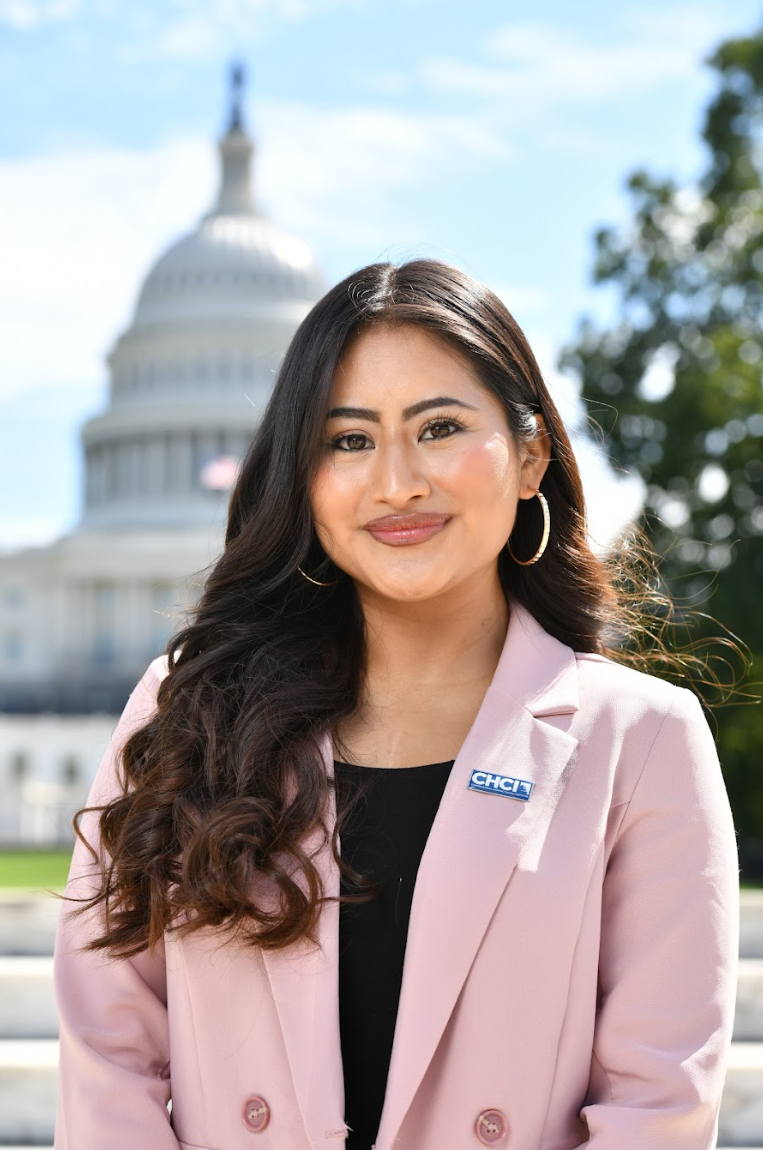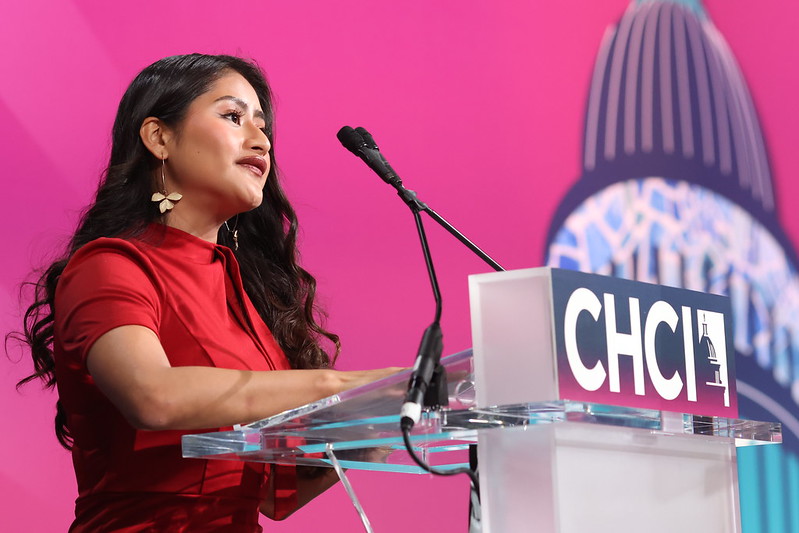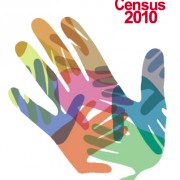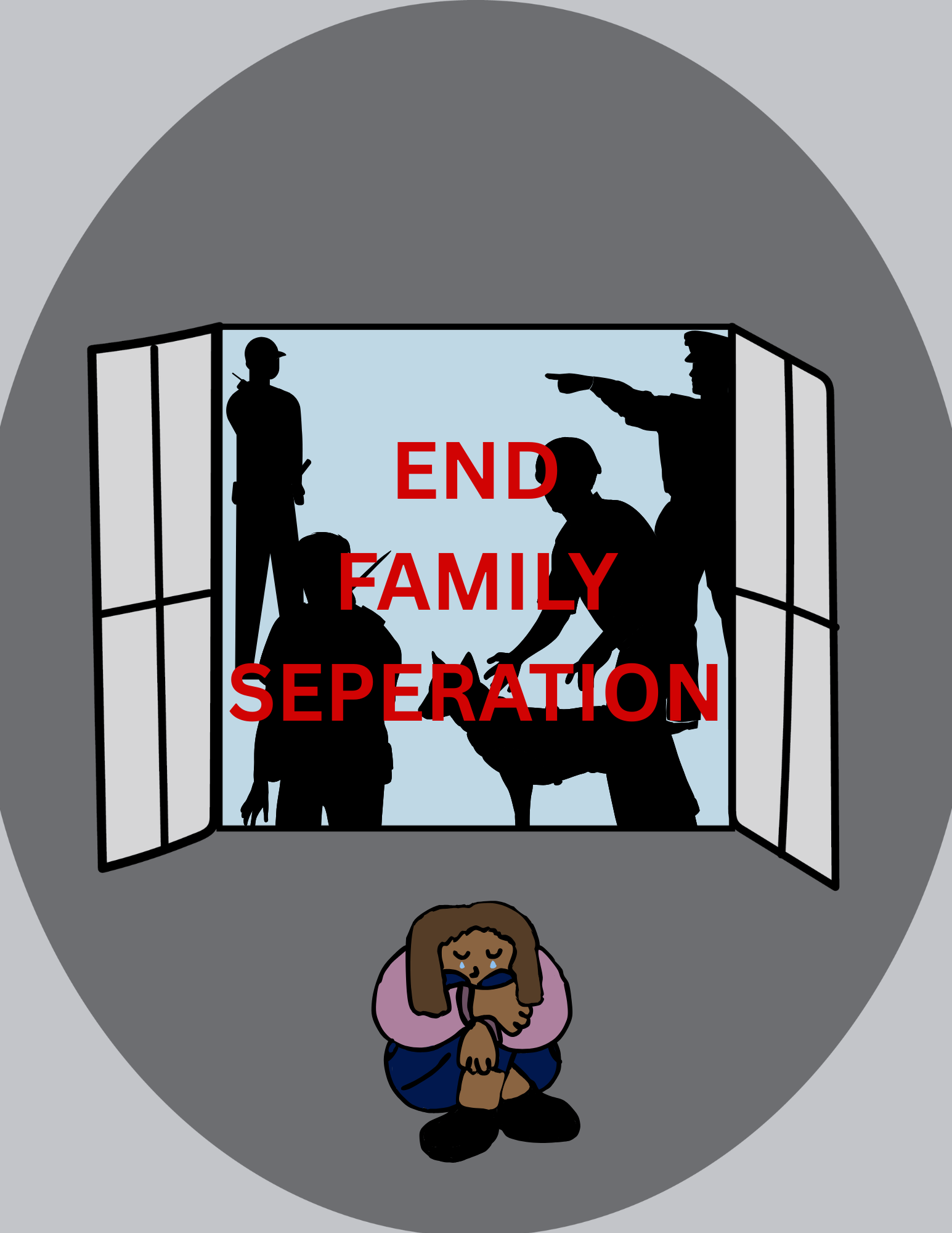A Oaxaqueña’s Journey to Public Policy: An Interview with Heidy Melchor

Photo provided by Heidy Melchor
Born and raised in Mid-City, Heidy Melchor, Zapoteca Oaxaqueña, is no stranger to the underrepresentation Latines face in public policy. Despite the challenges, Heidy has made her mark within the federal government and in the local LA community.
I had the pleasure of interviewing Heidy via Zoom on March 27, 2025 where we discussed public policy’s impacts on our lives as well as how we can use it to improve our communities, which became evident during her high school experience. Heidy was first introduced to the implications of public policy by her Cuban political science teacher who presented data on how Latino voters do not vote proportionally to their population. Although at the time the reasons weren’t very clear, Heidy now understands there are many reasons for this, such as language barriers, and general lack of information on the power of voting.
After being accepted into UCLA in 2019, Heidy’s desire to help the community led her to pursue the pre-med track. However, after receiving a mentor through UCLA’s Freshman Summer Program (FSP) who was majoring in Public Affairs, she was inspired to explore the creative process of public policy as a form of institutional change. Through this exploration of the major she realized it was her true calling. Along with Public Affairs Heidy majored in Labor Studies, where she gained an understanding of how to protect workers’ rights through community organizing. The experience she obtained from the majors gave her the upper hand for future endeavors such as the bill, H.R.8739 – Language Access for Workers Act. She was not only able to connect with the community, but she was able to understand what steps needed to be taken to implement changes for her constituents.
For a final in a public affairs course, Heidy wanted to discuss issues within the Oaxacan community in Los Angeles. However, she was unable to find data or research studies regarding the community.
“I took it upon myself to be like ‘Okay this is an issue, and why is it not talked about enough? I’m sure we make up a pretty good amount of the population here.’ Not finding that information was what like kinda pissed me off and I was like, ‘Okay there is something that I need to do.”
This fueled her desire to spark change, and bring more attention to the large Oaxacan community experience despite the erasure.
Throughout her journey at UCLA, she was unable to find an organization that fostered her identity, not only as a Latina but specifically as a Oaxaqueña. So she reinstated/founded Grupo Estudiantil Oaxaqueño (GEO) and tirelessly organized it so Oaxacan students could have a community at UCLA. Heidy still frequents as the alumni advisor, “Seeing it now 2 years later after I graduated, it’s so nice to see that the one place I think I always needed when I was in undergrad I never had but I was able to create that for other people.”

Photo provided by Heidy Melchor
After she graduated from UCLA in 2023, she participated in the DC Congressional Hispanic Caucus fellowship. She worked with California Senator Adam Schiff in the labor, small business, and transportation portfolio. She learned the chaos that is working on the hill and saw the way in which people have to play the game of politics. A “game” she previously had no interest in playing because she wanted to “work with the law but also implement and propose new things.”
During her time in DC, Heidy was able to work and present bill H.R.8739 – Language Access for Workers Act, which established grant funding for organizations to translate documents for workers whose primary language is not English. It stated, “any contracts, manuals, or training or other instruction related to the employment of such individuals in a language and manner that is understandable to such individuals”. Heidy explains it was an incredible moment for her to be able to partake in working on the bill as she had seen firsthand the ways language barriers can directly affect her community. She continues to work towards equality through her personal experience and emphasized the importance of policy makers rightfully representing communities. More specifically, “If anyone is telling our story, it’s us.”
Currently, she is working with Councilwoman Eunisses Hernandez in the 1st district of Los Angeles, where she serves as a liaison between constituents and the office of the councilwoman. She spoke on the transition from working in the federal government to now serving and addressing people’s concerns on a local level, and how fulfilling it is to work in the district she grew up in. We spoke on the importance of everyone voting not only on the federal or state level but also on the local level, which is where change begins.
There are a plethora of challenges when it comes to voting particularly for Latin American Indigenous populations within the county of Los Angeles where they have historically been undercounted. Heidy co-wrote How L.A. Can Stop Excluding Latin American Indigenous Language Speakers, where the authors explore the lack of representation of the Indigenous people of Latin America in Los Angeles, leading to the inaccessibility of voting ballots in their native language. A major contributor to the underrepresentation is the census (collected every 10 years); which lacks a section in which Latin American Indigenous populations can specify their native language. Since this data is not collected, they are vastly underrepresented and grouped together without an understanding of the various languages and communities they inhabit. The implications are dangerous, such as the lack of accessibility to basic public safety protocol because of language accessibility, therefore their ability to be represented within their local, state, and federal government becomes compromised. For these reasons Heidy wants to work towards full inclusion and representation of Indigenous communities through the improvement of the census and its understanding of these communities.
Heidy is excited to announce that she has committed to USC’s Master of Public Policy (MPP). She will conduct research on Oaxacan community language access and how to better account for the Indigenous populations in the U.S. I can’t wait to see what amazing things she accomplishes!
For the final question, I asked Heidy what advice she would give any Latinas pursuing their degree in policy or related fields. She explained that the biggest thing she would pass down is “taking the initiative to challenge yourself and put yourself in risky situations will only make you grow,” and, “Never be afraid to be involved in a multitude of spaces even if they are not tailored to you. You must learn to establish boundaries and take constructive feedback inorder to grow.” Most importantly, “This is not the time to make yourself small!”





